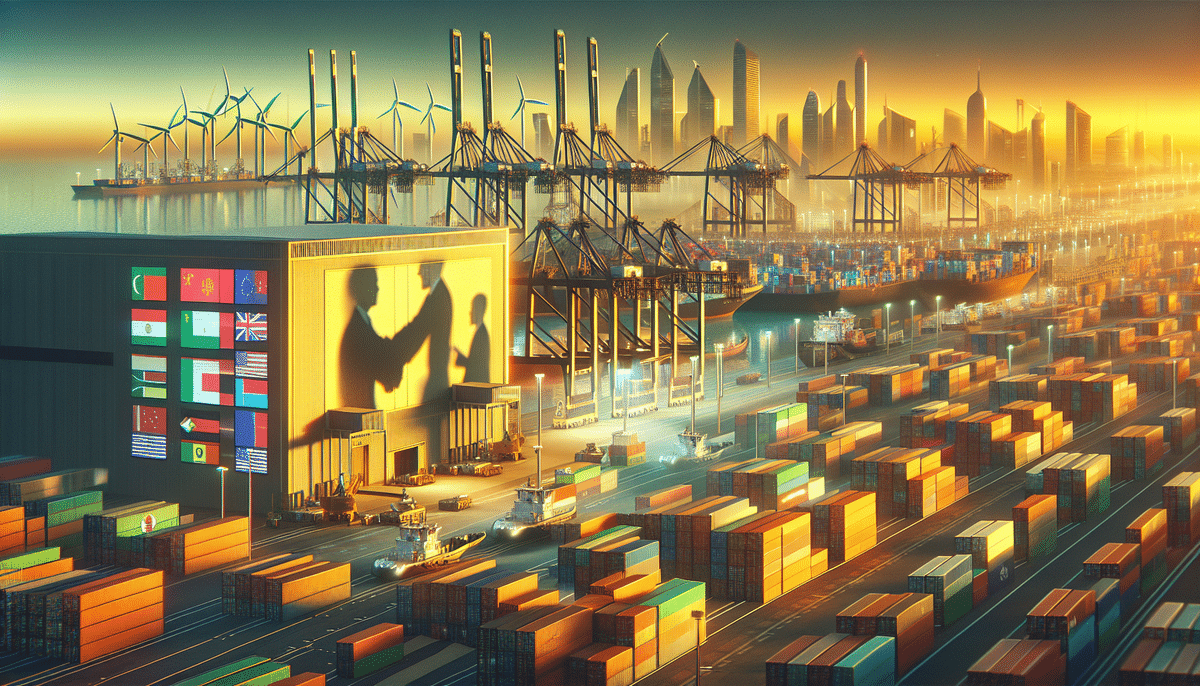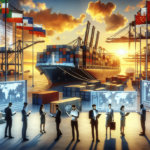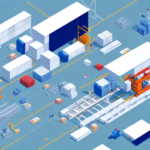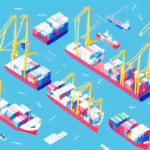Government Policies and Their Impact on Logistics
Government policies are a cornerstone in shaping the logistics landscape. From regulatory frameworks to infrastructure investments, these policies directly influence the efficiency and cost-effectiveness of logistics operations.
Regulatory Frameworks Impacting Supply Chains
Government regulations and policies significantly affect the flow of goods and services. For instance, changes in import and export taxes can increase the cost of goods, impacting businesses' bottom lines. According to the World Bank, trade-related regulations can add up to 11.5% to the cost of trade.
Additionally, modifications in labor laws or environmental regulations can disrupt supply chains. For example, stricter environmental policies may require logistics companies to adopt greener practices, potentially increasing operational costs but also opening avenues for sustainability certifications.
Infrastructure Investment and Logistics Efficiency
Investment in transportation infrastructure is vital for efficient logistics operations. Governments often fund highways, railways, and ports, which are essential for the smooth movement of goods. A report by the OECD highlights that every dollar invested in infrastructure can generate up to $2 in economic benefits.
Inadequate infrastructure can lead to supply chain disruptions, delayed shipments, and increased costs. Conversely, robust infrastructure investment promotes faster delivery times and reduces logistical inefficiencies.
The Role of Lobbying in Shaping Logistics Legislation
Lobbying plays a critical role in shaping legislation that affects the logistics industry. Companies often engage in lobbying efforts to advocate for favorable regulations, such as reduced trade barriers or increased infrastructure funding. Effective lobbying requires a deep understanding of the political landscape and strong communication channels with policymakers.
For example, logistics firms may lobby for tax incentives that encourage the adoption of advanced technologies like automation and AI in supply chain management.
Political Instability and Geopolitical Risks in Global Trade
Political instability and geopolitical tensions pose significant risks to global trade and logistics. These factors can disrupt supply chains, increase costs, and create uncertainty for businesses operating internationally.
Effects of Political Instability on Supply Chain Management
Political instability, such as civil unrest or conflict, can severely disrupt transportation routes and delay the delivery of goods. According to the Corruption Perceptions Index, countries with higher political instability often experience greater supply chain disruptions, leading to increased operational costs.
Businesses may need to find alternative routes or transportation modes, further elevating expenses and complicating logistics operations.
Navigating Geopolitical Risks in Supply Chain Operations
Geopolitical risks, including trade wars, sanctions, and diplomatic tensions, require proactive strategies in supply chain management. Companies must continuously monitor geopolitical developments to anticipate potential disruptions.
For instance, the U.S.-China trade tensions have led many companies to diversify their supply chains to mitigate the risk of tariffs and trade restrictions.
Political Risk Assessment in Logistics Decision Making
Conducting political risk assessments is essential for informed logistics decision-making. By evaluating the political climate of a country, businesses can identify potential risks and opportunities, allowing them to adapt their strategies accordingly.
Tools like the Control Risks platform provide comprehensive analyses of political risks, helping companies to navigate complex international environments.
International Trade Agreements and Their Influence on Logistics
International trade agreements significantly impact logistics by shaping the terms of trade, reducing barriers, and standardizing regulations across countries.
Impact on Transportation Costs and Supply Chain Efficiency
Trade agreements like the United States-Mexico-Canada Agreement (USMCA) reduce tariffs and simplify customs procedures, thereby lowering transportation costs and enhancing supply chain efficiency. According to the World Trade Organization, such agreements can increase trade volumes by up to 25%.
Lower transportation costs enable businesses to offer more competitive pricing and improve their market reach.
Trade Agreements and Standardization of Regulations
International trade agreements often include provisions for standardizing regulations and procedures, which facilitates smoother cross-border logistics operations. Standardization reduces administrative burdens and minimizes the risk of compliance-related delays.
For example, the USMCA includes standardized rules of origin, which streamline the certification process for goods moving between member countries.
Influence of Political Leaders and Election Cycles on Logistics Strategy
Political leaders and election cycles can significantly influence logistics strategies by shaping policies, setting priorities, and creating uncertainty during transitional periods.
Role of Political Leaders in Shaping Logistics Strategy
Political leaders, such as presidents or prime ministers, can set agendas that directly affect the logistics industry. Their decisions on infrastructure investments, trade policies, and environmental regulations can create opportunities or challenges for logistics companies.
For instance, a leader prioritizing green initiatives may encourage the adoption of sustainable logistics practices, prompting companies to invest in eco-friendly technologies.
Effects of Election Cycles on Logistics Planning
Election cycles introduce a level of uncertainty that can impact logistics planning. During election periods, governments may implement temporary policies or change priorities based on campaign promises, which can affect supply chain operations.
Businesses often adopt flexible strategies to navigate the uncertainties associated with election outcomes, ensuring they can adjust to new policies or regulations swiftly.
Strategic Considerations: Balancing Political and Logistics Objectives
Balancing short-term political goals with long-term logistics objectives is crucial for sustainable business operations. Companies must align their strategies with political developments while maintaining their logistical efficiency and competitiveness.
For example, while a government may offer immediate tax breaks for adopting certain technologies, businesses must consider the long-term implications of such incentives on their operational sustainability and scalability.
Case Studies: Political Interventions in Logistics
Analyzing case studies of political interventions provides valuable insights into their effects on logistics operations, highlighting both successful and failed attempts to influence the industry.
Successful Political Interventions: Examples
The construction of the Panama Canal is a prime example of a successful political intervention that significantly reduced transportation time and costs, enhancing global trade efficiency.
Failed Political Interventions: Lessons Learned
Conversely, the closure of the Suez Canal during the Arab-Israeli War led to severe disruptions in global supply chains, highlighting the vulnerabilities posed by geopolitical conflicts.
These case studies underscore the importance of political stability and proactive risk management in logistics planning.
Understanding the Complex Intersection Between Politics and Logistics
The intersection of politics and logistics is multifaceted and dynamic, with political decisions continually shaping the logistics landscape. Businesses must remain vigilant and adaptable to navigate the complexities of this relationship effectively.
By staying informed about political developments, conducting thorough risk assessments, and aligning strategies with both political and logistical objectives, companies can maintain resilience and thrive in an ever-evolving global marketplace.




















